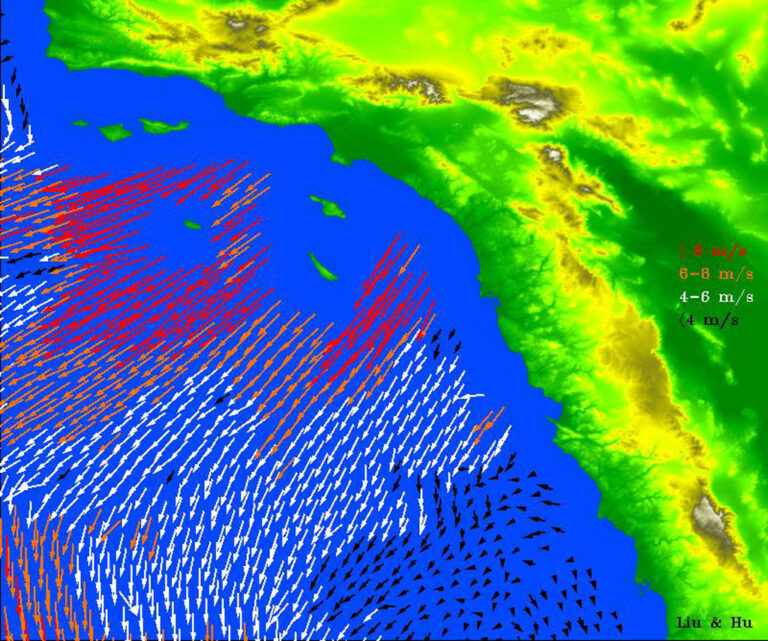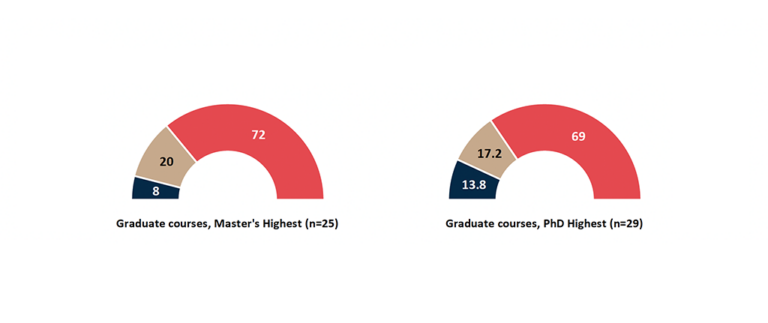Undergraduate Education: Let’s Pay Attention

I think the best part about being president of the AAG is attending the regional meetings. I have traveled to East Lakes at Kent State University; West Lakes at the University of Wisconsin-Eau Claire; and the Pacific Coast Geographers in Palm Springs, Calif. Thanks to all of you involved in these meetings for your hospitality and attention. This month I will attend two additional divisional meetings:—the Southwest Division (SWAAG) in San Antonio, Texas, and the Southeast Division (SEDAAG) in Pensacola, Fla. The meetings I missed, RMGP, NESTVAL, and Middle States, have been covered by my AAG colleagues, Glen MacDonald, Mona Domosh, and Melissa Gilbert. Thanks!
I say this is the best part because it has given me the opportunity to talk to a wide range of geographers—faculty, of course, but also undergraduate and graduate students, representing a broad spectrum of institutions, from community colleges to private undergraduate institutions to Research 1 schools. When I talk to faculty we usually share a number of concerns related to the theme of survival in a time of disruption in higher education. On a daily basis, I observe my colleagues across the country deal with external and internal pressures related to recruiting and retaining students, building strong programs, harmonizing personal and professional demands, balancing research and teaching, and coping with having to do more with less. I have thought of this as a listening tour, trying to sense what members across the spectrum need from our organization. This is a serious endeavor, and I have tried to interact and reflect as much as possible. Many of our fellow geographers are thinking deeply about our discipline, higher education, and best ways to situate ourselves in a shifting landscape.
When I talk to students, however, I get a huge blast of energy. It is refreshing because the students who attend regional meetings are so enthusiastic, idealistic, and yes, refreshingly naïve. They are happy to be geographers, to have a sense of the importance and power of their major, and to belong to a discipline and organization that cares about them. The student paper and poster presentations have been impressive; and while I am not enthusiastic about academic competitions, many students seem very motivated by relatively modest monetary awards for “best.” Kudos to the faculty who nurture these students (particularly undergraduates), who bring them to regional meetings, who carefully mentor them on how to get the most from a professional academic meeting; and who have to supervise them while away from campus. You are heroes!
Our association has done ground-breaking work promoting the study of graduate education over the last decade; research by Foote, Monk, Schlemper, Solem and others has assisted in reforming conditions of postgraduate studies. This work has helped to position us well vis-à-vis the challenges geography faces around the world in preparing M.S. and Ph.D. graduates. A recent issue of GeoJournal (http://link.springer.com/journal/10708/80/2/page/1) critically examines the status of the Ph.D. degree in geography and suggests trajectories for the degree (shameless plug: it will serve as the basis of a panel discussion at SWAAG in which I will participate). Paying attention to advanced degrees will continue to be important to geography and all higher education, especially as B.S./B.A. degrees lose their value in relation to M.S./M.A. and Ph.D. degrees in terms of employment and compensation. However, I think it is time to draw some attention to undergraduate education in geography.
Why undergraduate education? There is a rich and lively research literature about undergraduate education both in the liberal arts and STEM fields. Much of it is often alarming and captures public attention; consider books like Academically Adrift (Arum and Roska 2011) and How College Affects Students (Pascarella and Terenzini 2005). But even without being sensationalistic, there are a number of significant questions for which we have few answers: What do students learn in college? Is it worth the investment to send a student to college? Can we make claims that students learn to think critically, or become more qualified citizens, or are more employable, as a result of their education? We have ideas obtained from explorations of some disciplines, but nothing concrete to report for geography. What is the value added of a geography degree? Who decides to become a geography major—and why? Are we an open and accessible major or do we discourage inclusivity in some instances. Why are only about 30 percent of the graduating geography B.S./B.A. majors women? And in terms of other diversity measures, where are we and what can we do about it?
I believe we need to pay careful attention to undergraduate education in geography to strengthen our research base and to make the case to students, their parents, administrators, and others that geography is a worthwhile investment, financially and intellectually. AAG has inaugurated a special award to recognize outstanding undergraduate- and masters-level geography departments. This might be an ideal place to start. A number of B.A./B.S. programs have been nominated from the Association’s Regional Divisions: what can we glean about preparing successful students and best practices from these nominations? I asked Derek Alderman, University of Tennessee, who is chairing the award process. He writes:
“Exemplary programs are often united in providing their undergraduate students with opportunities for public partnerships, internships, and service-based learning that address social and environmental issues near and dear to their local communities. The faculty of nominated programs frequently engage students in travel and study abroad, demonstrating that geography plays a critical role in the ongoing internationalization efforts of today’s campuses. A hallmark of outstanding undergraduate-focused departments is how they embrace the development of students as professional leaders, often using their connections with alumni, industry, public agencies, and other universities to cultivate internship placements, job opportunities after graduation, and scholarship and fellowship opportunities. Importantly, excellent programs do not focus simply on teaching but maintain a balance between the pursuit of scholarship and student learning mentorship, and these departments are frequently characterized by a culture of undergraduate research experiences.”
What do you think? As President Obama just wrote, “If you’ve got thoughts on this topic, I want to hear them.”


